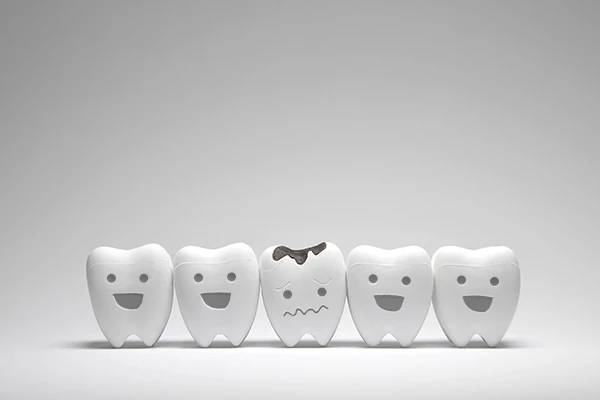How Seaweed Helps to Stop Tooth Decay
Posted on 10/1/2025 by San Francisco Dental Arts |
 Keeping your teeth healthy is crucial for maintaining your overall health and well-being. Tooth decay, also known as dental caries, is a common problem that can lead to pain, infection, and even tooth loss. Fortunately, there are several things you can do to prevent tooth decay, including maintaining good oral hygiene habits and eating a healthy diet. Recent research suggests that seaweed, a type of marine algae, may also play a role in preventing tooth decay. Keeping your teeth healthy is crucial for maintaining your overall health and well-being. Tooth decay, also known as dental caries, is a common problem that can lead to pain, infection, and even tooth loss. Fortunately, there are several things you can do to prevent tooth decay, including maintaining good oral hygiene habits and eating a healthy diet. Recent research suggests that seaweed, a type of marine algae, may also play a role in preventing tooth decay.
How Tooth Decay Develops
Tooth decay develops when bacteria in the mouth break down sugars and starches in food, producing acid. This acid can erode the tooth enamel, the hard outer layer of the tooth, creating holes called cavities. If left untreated, cavities can become larger and deeper, eventually causing pain and infection.
The Benefits of Seaweed for Oral Health
Seaweed has been consumed in many cultures for centuries and is known for its various health benefits. Recent studies suggest that seaweed may also be beneficial for oral health, due to its high concentration of minerals and beneficial compounds.
One of the most promising compounds found in seaweed is a type of polysaccharide called fucoidan. Fucoidan has been shown to have antibacterial properties, meaning it can help to kill bacteria in the mouth that contribute to tooth decay. Additionally, fucoidan can help to strengthen tooth enamel and prevent the formation of cavities.
Other compounds found in seaweed, such as alginates and laminarin, have also been shown to have beneficial effects on oral health. Alginates can help to remove plaque, the sticky film that builds up on teeth and contributes to tooth decay. Laminarin can help to stimulate the production of saliva, which helps to wash away food particles and bacteria and neutralize acid in the mouth.
Incorporating Seaweed into Your Diet
While more research is needed to fully understand the benefits of seaweed for oral health, the available evidence suggests that it may be a valuable addition to a healthy diet.
If you're interested in incorporating seaweed into your diet, there are several ways to do so. You can find seaweed in many Asian grocery stores and some health food stores. It can be eaten fresh, dried, or processed into various products such as noodles, chips, and supplements. Some common types of edible seaweed include nori, kombu, wakame, and spirulina.
Prevention Dentistry and Oral Care Habits
It's important to note that even if you incorporate seaweed into your diet, it's still crucial to practice good oral care habits and see your dentist regularly for preventive checkups and cleanings. Brushing your teeth twice a day with fluoride toothpaste, flossing daily, and limiting sugary snacks and drinks will go a long way in preventing tooth decay.
By combining good oral care habits with a healthy diet that includes seaweed, you can significantly reduce your risk of developing tooth decay and maintain a healthy, beautiful smile. |
|
